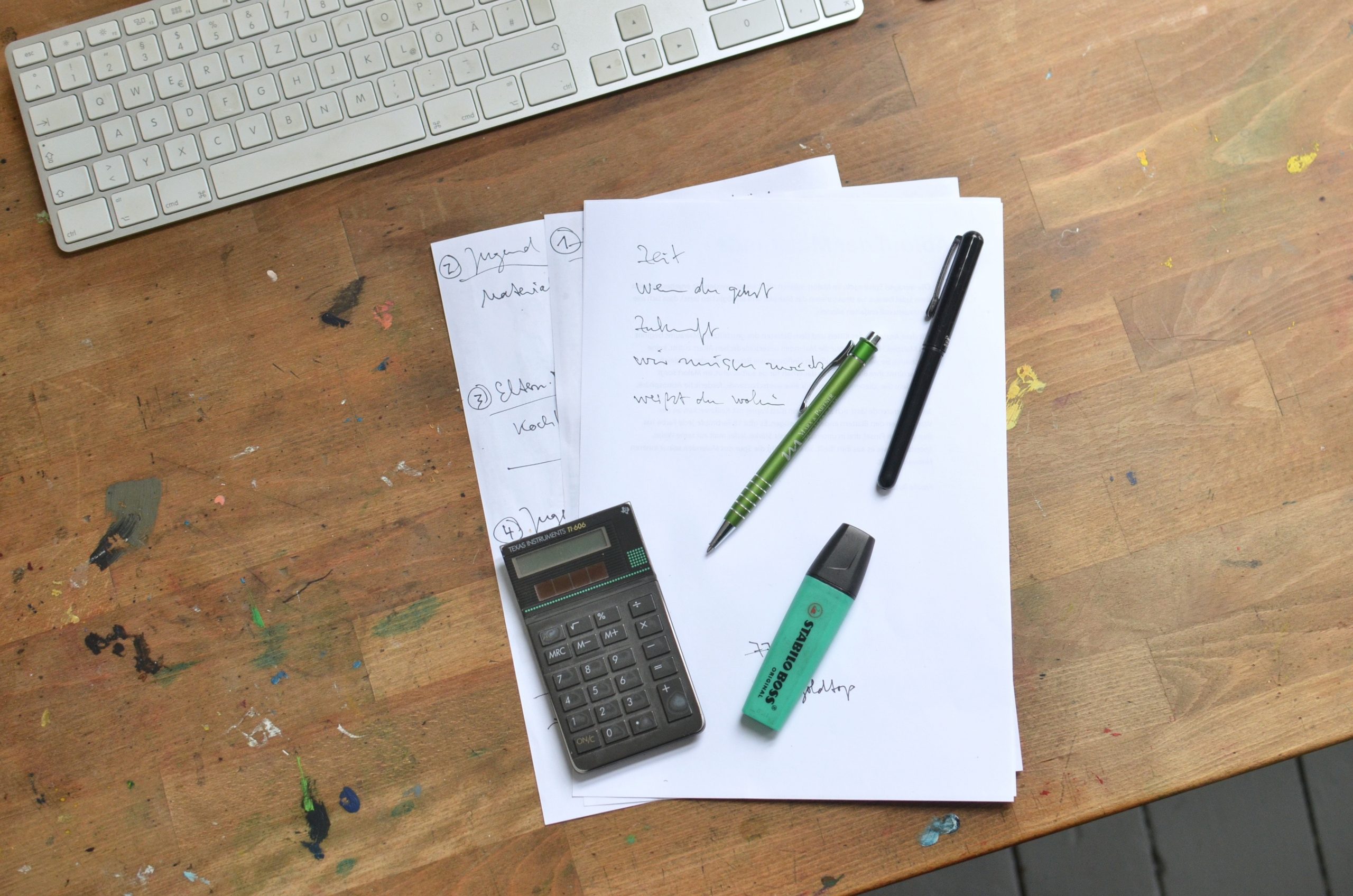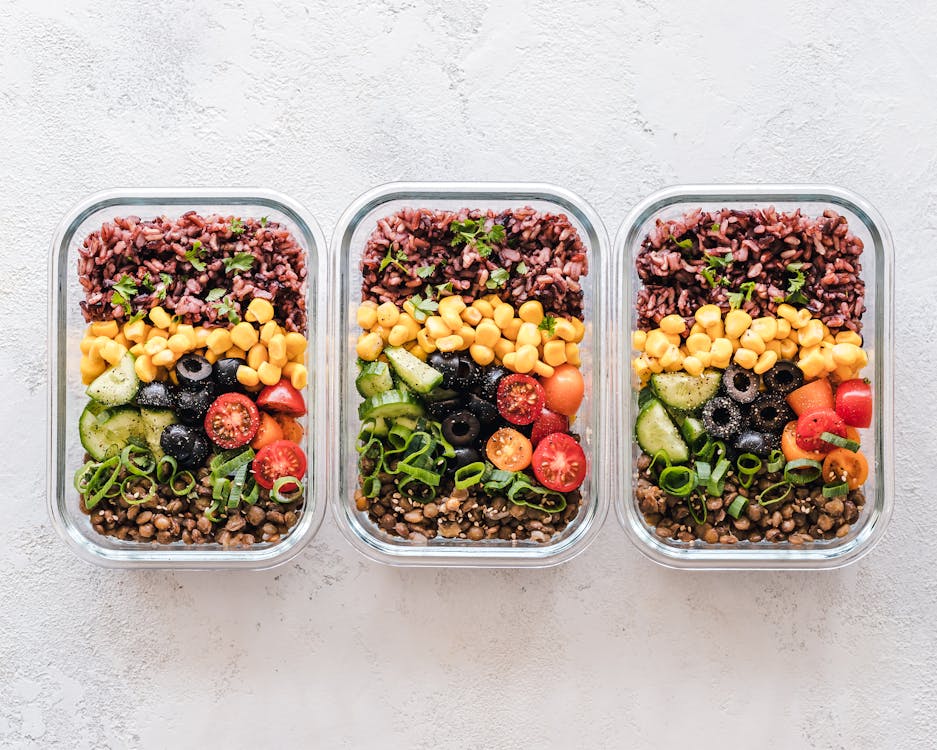It’s that time of year when everyone’s thoughts turn to resolutions and self-improvement goals. This year, instead of a list of unrealistic lifestyle changes, how about a project that is doable, actionable, and one that offers some immediate gratification?
Making even small changes to your budget can significantly impact your future. And we’ve got a way for you to get started right away with these ten easy budgeting tips for the new year.
1. Establish a Budget
The first tip may seem obvious since it’s so closely tied to the title of this post. But if you want to get a grip on your finances in the new year, you’re going to need a budget.
For many people, just the word “budget” conjures up spreadsheets full of complex figures and bad memories of that accounting 101 class that you barely passed (or not) your first year of college. If this sounds like you, it’s time to change your mindset around budgeting.
You don’t need a ledger, adding machine, or long hours of arithmetic to budget effectively. There are quite literally hundreds of budgeting methods, apps, and websites that can work for you no matter where you’re at. You can try out different ones until you find a budgeting method that is just right for you and your family. While there are plenty of paid budgeting systems, we prefer the free versions. After all, one of the primary purposes of a budget is to save money, right?
Here are three of our favorites:
1. Mint
Mint by Intuit is one of the most versatile free budgeting apps available. One of the best things about this particular app is that you can access it on desktop and mobile, so it’s ideal for those who enjoy this flexibility. With Mint, you can input all your accounts, and the app will sync your transactions throughout the month. It also organizes your spending into categories so you can easily see where you’re at any time.
2. Zeta
If you are in a relationship and managing your finances as a couple (or you would like to start), this next app is the perfect solution. Zeta is one of the few budgeting apps catering specifically to couples—married, living together, engaged, new parents, etc. Not only can you track your spending and take charge of your bills together, but you can also sign up for joint accounts and debit cards with premium features.
3. Goodbudget
If you are looking for a simple and free budgeting app for your smartphone, Goodbudget can do the trick. This app uses the envelope budgeting system, where money gets earmarked for specific monthly bills and expenses in virtual “envelopes.” The free plan allows you up to 20 envelopes that you can customize according to your budgeting needs.
2. Set Some Savings Goals
Are you trying to save up enough for a downpayment on a house, a vacation, a new car, or your child’s education? Regardless of your financial goals, getting them in writing and taking concrete steps can turn your wishes into reality.
One way to begin is to set up an automatic transfer from your checking account into a savings account. Many banks have this feature. Here’s how it works: Every time you use your debit card, your bank makes a small deposit between $1.00 to $5.00 (or more) into your savings. This is the perfect way to save on autopilot, so check with your bank to see if they offer this perk.
Alternatively, you can have a portion of each paycheck deposited directly into a savings account. Or (if you are really disciplined) take on the task yourself. Transfer 20 percent to a savings account every time you get paid, and then don’t touch it!
See also: Tips to Saving Thousands of Dollars
3. Look for Insurance Discounts
You’re probably so inundated by ads for lowering the cost of your car insurance that this tip might go right over your head. But in some cases, moving to another insurance agency actually can save you hundreds of dollars a year.
This is especially true if you combine all of your household’s insurance policies under one umbrella. For example, you might want to move your family’s separate car insurance to the same company or bundle them with renters, homeowners, and life insurance policies. This way, all of your insurance is under one account. Typically, this can mean significant savings. But, of course, you’ll want to shop around to get the best deal, so compare costs and don’t just go with the first offer you see.
4. Dedicate More Time to Meal Planning and Preparation
If you’re already doing this, great! But if not, meal planning and prep can give you some immediate financial benefits and may even help you get healthier in the process.
It’s easy to grab a fast-food lunch and a soda at work, but a few hours of planning over the weekend can save you enormous amounts of cash over the next year. Think about some things you would enjoy for lunch, then purchase the ingredients and make some items for yourself at home.
The same goes for dinners. If you’re too tired to cook after a long day of work, there are plenty of strategies that can help you prepare for this inevitability. You could start slow and easy, planning a few inexpensive slow cooker meals each week. Alternatively, you can dive in all the way and adopt some Once-a-week cooking methods where you spend one day doing a majority of your food prep for the week.
5. Get a Side Hustle
If there is one thing that can improve your finances in 2022, getting a side hustle is it. Are you tired of feeling stressed trying to make ends meet? Worried that you just don’t have enough to save at the end of the month? Always coming up short when it’s time to pay bills? A side hustle could be the answer to your prayers.
A side hustle is like a flexible part-time job that you do on your own time and your own terms. There are plenty of them out there, from dog-walking to taking surveys for cash. All you need to do is find a need and fill it.
The gig economy has created opportunities everywhere for side hustles. Uber, DoorDash, and other driving and delivery services are perfect examples of this. These are independent contractor positions that you do when you can fit them into your regular schedule.
Can’t find a gig that you like? Create your own and see what happens. You never know when someone is looking for a skill you just happen to have.
6. Get Organized and Clear Out the Clutter
How is clearing out the clutter in your home a budgeting tip? How many times have you gone out and purchased something only to discover you had the exact thing buried in a drawer at home? Getting organized so you have “a place for everything and everything in its place” is a tried and true budgeting strategy that can benefit you in many ways.
For example, when you start clearing out many years’ worth of stuff, you’re likely to find some perfectly good items you no longer need. You may even find some things of value you had no idea were just sitting in the back of your cluttered closets.
Take those excess items, sell them at an online marketplace or auction, and watch the money roll in. Not only will your wallet be a little fatter, but your house will be a little cleaner, too.
7. Reconsider Your Memberships and Subscriptions
When you examine all the things you may have signed up for here and there over the past year, you might be surprised to find out how much you are spending each month.
For example, subscription spending went up around 15 percent during the pandemic. In fact, the average American household now spends around $273 a month on average on apps, meal services, ebooks, cloud storage, and streaming TV subscriptions. Yikes!
Sit down for an hour and look at these incidentals coming out of your bank account each month. Then, get rid of all the ones you no longer want or need. It’s as easy as one or two clicks to save yourself a whole lot of money in the new year.
8. Focus on Energy Efficiency
Another budgeting tip to implement for the new year is to focus more on energy efficiency. But, what does that even mean?
- Turn off the lights (and other appliances) when not in use. Your parents or grandparents may have nagged you about it constantly, but it’s a legitimate concern. If you leave your toaster, coffee maker, and other small appliances plugged in all the time, they are still drawing juice that will reflect on your electric bill. The same goes for leaving the lights on.
- Change out your old bulbs for energy-efficient ones. If you are still using regular light bulbs, switch them to LEDs or CBLs. This simple move can save you money and help the environment. These bulbs use 70 percent less energy than the standard ones.
- In many cases, your town or state provides freebies or rebates when you purchase energy-efficient bulbs or appliances, so be sure to check online and see if there are any programs like this in your area.
9. Save on Transportation Costs
There are a number of small changes you can make to save on transportation costs and even have a little fun this year:
Change Your Oil and Air Filter Regularly
Preventative maintenance of your vehicles can save you hundreds (maybe even thousands) in repair costs later on. Changing your oil can prolong the life of your engine and boost performance. And regularly changing your air filter can improve your car’s gas mileage by seven percent.
Utilize Public Transportation
If you live in an area with public transit such as trains, buses, or trolleys, take advantage of them whenever possible. And if you decide to ditch the car and use public transportation full time, you can save thousands of dollars a year on parking, maintenance, gas, insurance, and other costs of owning a car.
Stay Local
Rather than taking long car trips for vacation this year, explore the wonders in your state, county, or town. There are probably dozens of things to see and do right outside your own back door.
10. Look for Free Entertainment
This next tip should be easy to follow after being cooped up for so long during the pandemic. Instead of spending your entertainment money on costly movies, dinners out, or concert tickets, take advantage of free activities and events. You can usually find them by looking in your town’s social media pages or scouring the local free newspapers.
There are plenty of free (or at least low cost) activities in most areas. You just might need to do some digging. For example, you could pack a picnic and head to a nearby playground with the kids. Or grab your sneakers and hit a local trail.
In inclement weather, look for indoor activities at museums, art galleries, colleges, and other places offering free or discounted admission.
Closing Thoughts
We have many other posts with budgeting tips for the New Year to help you get your financial house in order. From “No Spend Challenges” to the best finance books to read, the Branded Daily Digest has you covered when it comes to frugal living and making money on the side. However, as you consider what you would like your finances to look like a year from now, these ten suggestions are a great place to start.













